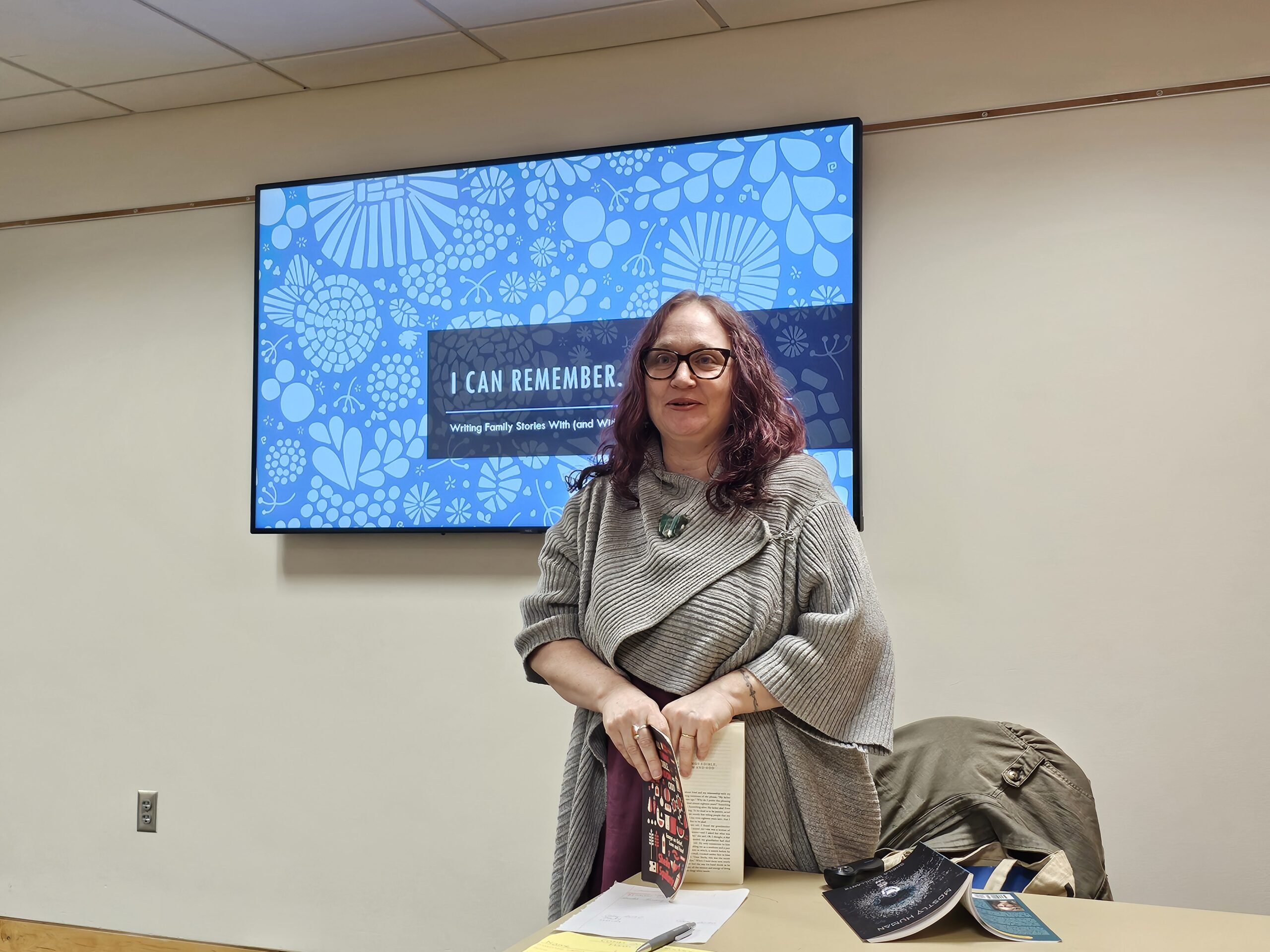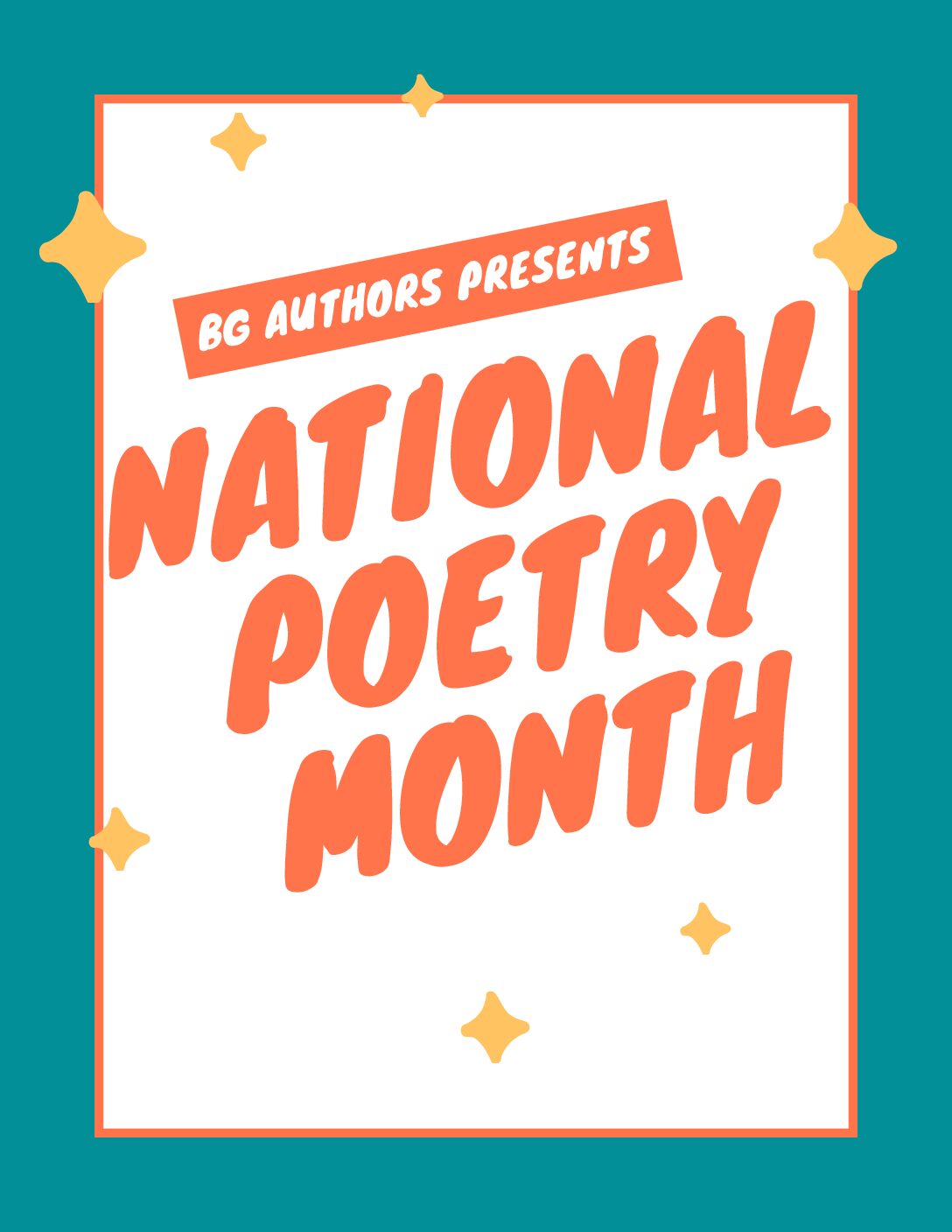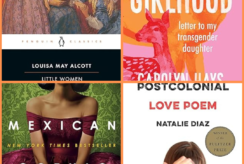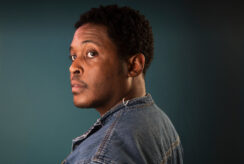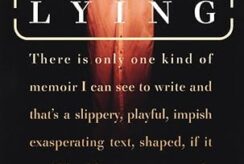Last week, the visiting author, Sheila Squillante, presented the art of creative non-fiction at BGSU. Last year, her memoir came out.
From Chatham University in Pittsburgh, PA, Squillante visited BGSU, last week. Previously, she has published collections on poetry, but most recently, her memoir, All Things Edible, Random and Odd was published in 2023.
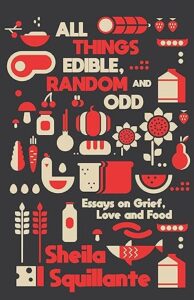
“I can remember. I will. I do.”
From Squillante’s presentation, she relayed messages from All Things Edible, Random and Odd: Essays on Grief, Love and Food. These include grief from her late father and the loss of memory. She struggled with, “–writing family stories with and without the certainty of memory.” However, she found that, “The certainty of memory does not exist.” For example, we may not be able to visualize a memory, anymore, but we may remember how the sun warmed our face on that day. She grappled with forgotten conversations between her late father and her. Yet, she remembered that his character was sincere, silly at times, etc. Her memoir compels the fear of forgotten memories and persons, even loved ones, while relishing in the emotion from brief moments. There is no such thing as an incomplete memory because we still, subconsciously, hold sensory details with us that relay the overall emotion and experience from one occurrence. Just like gold, memories come in flakes, and we should write about their shimmers rather than their separation from the whole.
Creative Non-fiction Strategies and Ethics
Pulled directly from Squillante’s presentation, here are 7 strategies and ethics when writing creative nonfiction:
- Empty your brain: interview yourself – what you felt, thought, experienced from a memory
- Borrow from yourself: texts, social media posts, emails, documents, etc.
- Interview others: ask broad to narrow questions with gentle respect to interviewee – let them ramble
- Ask for “real” feedback: “fact-check” events with others involved in the same scenario and their experience
- Historical and cultural research: library, databases, Hive Mind, etc.
- Immersion: go back to the place said event occurred to trigger memories and further reflection
- Imagination: if you stretch the truth, tell your readers like it’s a contract – do not lie without purpose
Poetic Relations
The same strategies, ethics, and take-aways from creative nonfiction can be translated into poetry. One of Squillante’s most recent poetry collections, Mostly Human, won the 2020 Wicked Woman Book Prize from BrickHouse Books. In Mostly Human, we follow this persona, Round Baby, through coming of age hardships. Round Baby represents the universal witness to global disasters such as Chernobyl. Likewise, the themes and messages can hit hard for readers, today, living through or witnessing global and personal disasters.
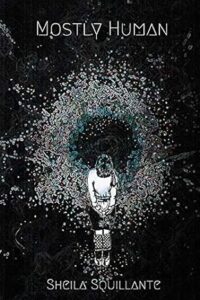
Whether you’re attracted to creative nonfiction or poetry, these collections and strategies are worth trying out.
